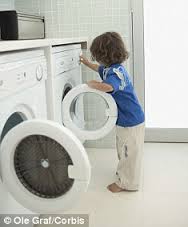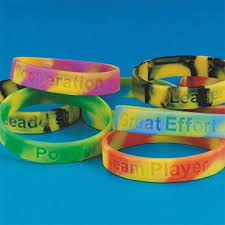Last week we posted a story highlighting concerns over the on-court behaviour of some of our young squash players. Essex coaches were asked to remind players about the game’s Code of Conduct after a number of incidents of racket abuse, unsavory language and heightened emotions on court.
Feedback from the article was extremely positive and already there are signs that the message is getting through. The incidents are extremely rare and we are confident our players will take on board the concerns.
 Today, we are grateful to JOHN ALLPRESS, a hugely experienced professional sports coach and valued member of the Essex Junior Squash Committee, who has shared with us his thoughts on how good character can lead to success plus some salutary words of advice to help guide our youngsters through the early years of competition.
Today, we are grateful to JOHN ALLPRESS, a hugely experienced professional sports coach and valued member of the Essex Junior Squash Committee, who has shared with us his thoughts on how good character can lead to success plus some salutary words of advice to help guide our youngsters through the early years of competition.
John’s words reflect his own thoughts and are not meant as a set of rules for anyone to follow to the letter. Hopefully, you’ll find his words as thoughtful as we did.
GOOD CHARACTER LEADS TO SUCCESS
Talented individuals without personal discipline and drive will ultimately fail. I believe that character triumphs over talent. It won’t win every match or tournament but it’s certainly going to help build a better player in the long run.
There are nine individual traits which, if developed, can lead to success not just in squash but in anything. They are
1. Curious to learn and not afraid to change
2. Works well with other people
3. Stays calm in turbulent times
4. Behaves well under pressure
5. Reacts positively when things go wrong
6. Sticks with challenges until those challenges surrender
7. Tries hard and intelligently to improve
8. Prepares well
9. Makes the best decisions (on and off court) more often
So what can parents do to help?
Make home (and the car journey) a SAFE place to be.
Let your child know that win or lose, you love them, appreciate their efforts and are never disappointed in them.
Deal in fact not fiction. Try your best to be completely honest with yourself about your child’s ability to improve their competitive attitude, sportsmanship and actual skill level.
 Encourage them to look after their own kit and equipment as soon as they can. Make sure they pack their own bag and put dirty kit in the wash. Start as you mean to go on.
Encourage them to look after their own kit and equipment as soon as they can. Make sure they pack their own bag and put dirty kit in the wash. Start as you mean to go on.
Be helpful and supportive but don’t coach them on the way to their match or tournament, or on the way back or at the meal table. It’s hard not to, but it’s a lot harder for the child to be inundated with a constant stream of advice, pep talks and often critical instruction.
You don’t have to go to every tournament, match or training session. Even if you don’t have other kids to look after and support. You and the non squash players in your family need a life and your squash players don’t always need you to be there. Work out a programme with other parents so that you and they don’t always have to go.
Allow your child to play their match. Help and advise if coaching but don’t control. Teach them to enjoy the thrill of competition, of pitting their wits against their opponent, to be on court trying to do their best, working to improve their skills, decision making and attitudes to predicaments they find themselves in.
Try not to relive your own sporting career through your children in a way that creates pressure. Remember you missed drops, lost matches you shouldn’t have done and backed off at times. Don’t pressure them because of your lost pride.
Let the coach do their job as they see fit. Get to know the coach so that you can be assured their philosophy, attitudes, ethics and knowledge are such that you are happy to have your child under their leadership and influence.
Model good behaviour. Recognise good play by the opponent, encourage your child to do the same. Shake hands after the match and thank the marker whether things have gone well or not.
Understand that in victory your child will be elated and in defeat disappointed but try not to dwell on either too long (they won’t if you don’t). After all, tomorrow is another day. So well done or hard luck now let’s move on.
Try not to overtly compare the skills and attributes of your children with others. It is only natural for you and your kid to spot differences but shoving these in your kid’s face isn’t helpful.
Always remember that children tend to exaggerate both when praised and criticised. Temper your reaction and investigate before over reacting.
 Make a point of understanding courage, and the fact that it is relative. Some of us will risk our lives climbing mountains or parachute jumping but be afraid to fight. Some of us will fight but turn to jelly if a bee approaches. Everyone is frightened by something, whether it be public speaking, asking a girl out you like or an injection. Explain that courage is not the absence of fear but a means of doing something despite that feeling of discomfort or butterflies in the stomach. Even the best get scared.
Make a point of understanding courage, and the fact that it is relative. Some of us will risk our lives climbing mountains or parachute jumping but be afraid to fight. Some of us will fight but turn to jelly if a bee approaches. Everyone is frightened by something, whether it be public speaking, asking a girl out you like or an injection. Explain that courage is not the absence of fear but a means of doing something despite that feeling of discomfort or butterflies in the stomach. Even the best get scared.
The job of a squash parent is enjoyable but tough sometimes and it takes a lot of effort to do it well. Help your kids to learn never to be too big to do the small things that need to be done. To always play honestly, try their best and respect their opponents. It is worth all that effort when you hear your youngster say “…I was lucky. My mum and dad really helped.
If you have any thoughts about John’s article or, indeed, anything else you would like to share with us, our contact details are on our Home Page.

